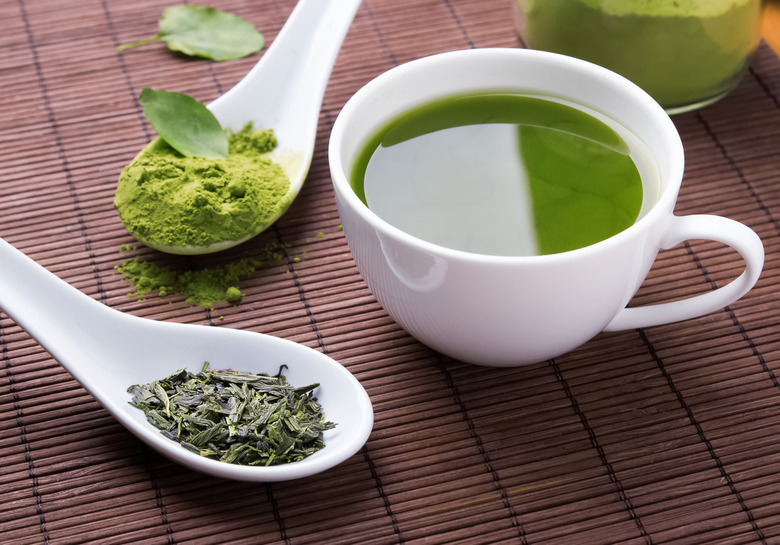Green Tea May Reduce Your Risk Of A Heart Attack, Study Says
According to a new study released in the Journal of Biological Chemistry, a compound found in green tea might be a powerful ally in the fight against heart disease. The beverage contains a molecule that could help prevent the buildup of plaque in the arteries.
To be scientificially precise, the molecule is called epigallocatechin gallate, or EGCG, and may help stave off atherosclerosis, characterized by the buildup of plaque in the arteries. Atherosclerosis can dramatically increase the risk of a heart attack or other cardiac episode.
These results seem promising, but maybe don't go stocking up on green tea just yet. Since the concentration of EGCG is relatively small in your typical cup of hot tea, you'd have to drink a ton to get enough of it to make a difference — which is not something that the study authors recommend.
"I would certainly not recommend that people drink excessive amounts of green tea," David Middleton, co-author of the study, told The Daily Meal in an email. "Many food substances taken in excess can, of course, be harmful, and there is evidence that very large doses of green tea can cause liver and kidney damage."
But that doesn't mean you shouldn't drink any green tea, either.
"It is unlikely that drinking normal quantities of green tea would have a big positive impact on heart disease," Middleton conceded, "but for the majority of people there would be no harm in replacing your daily cups of black tea with green tea."
Green tea is likely to have other health benefits, including improving vascular reactivity, lowering LDL cholesterol, and reducing blood pressure, according to a release from Harvard Medical School.
And while daily drinks of green tea might not eradicate America's heart problems, the study does have promising implications for future treatment. For those who want to know more about the nitty-gritty of the study, the researchers found that amidst certain conditions, EGCG bound to apolipoprotein A-I (apoA-I), a protein believed to contribute to the plaques that cause atherosclerosis. When the EGCG binds to the protein, it makes the protein more soluble and therefore less likely to have a damaging effect within blood vessels.
"EGCG could have beneficial effects against cancer, neurodegenerative disease, and cardiovascular disease (as shown in our study and by others) if scientists can find the right way to administer it," Middleton explained. "The next step for us is to look at new ways of delivering EGCG into the bloodstream, and also to engineer new molecules that are similar to EGCG but more resistant to the body's mechanisms of breaking it down."
If scientists can achieve either, green tea could really make a difference in combating atherosclerosis and the risk of cardiac arrest.
But in the meantime, adding a cup or two to your daily routine couldn't hurt. Just don't drink green tea before bed — like these other foods, it could keep you from falling asleep!
